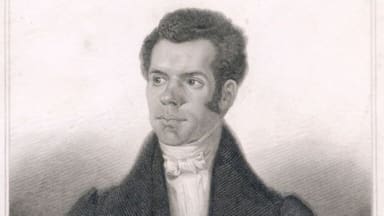
Taking place at the Linnean Society, the (Re)discovering Natural History Symposium, unites historians, archivists, curators and artists to highlight the ways of finding and telling the best or hidden stories in the special collections of natural history archives. One such story, is that of the Reverend Thomas Birch Freeman, who’s horticultural history is overshadowed by this religious legacy.
I discovered Rev. Thomas Birch Freeman (1809-1890) in the Miscellaneous Report archives at Kew. Freeman was an Anglo-African Victorian missionary and botanist.
Born in Hampshire, England, Freeman was the son of a freed slave and working-class Englishwoman. Following in the footsteps of his late father, he became a gardener. An avid reader, Freeman became very knowledgable in horticulture. In 1837, after several years as the head gardener at an estate in Ipswich, he travelled to the Gold Coast, modern day Ghana, as a Wesleyan Methodist minister. Whilst there, he corresponded with Sir William Hooker, the first Director of the Royal Botanic Gardens, Kew about West African flora and Freeman also researched and collated plant specimens, including seeds for Kew and various other contacts in Britain.
For decades missionary historians have laid claim to Thomas Freeman, in each case they have overlooked his contribution to Britain’s colonial economic botany, plant collecting, horticulture and agriculture which has been overshadowed by this religious legacy.
I travelled to Ghana as part of my research in order to redress this balance so that he can finally get the recognition he deserves.
To hear his story and horticultural contributions, I will be speaking at the Symposium| (Re)discovering Natural History at the Linnean Society in London, on the 11th of February.

